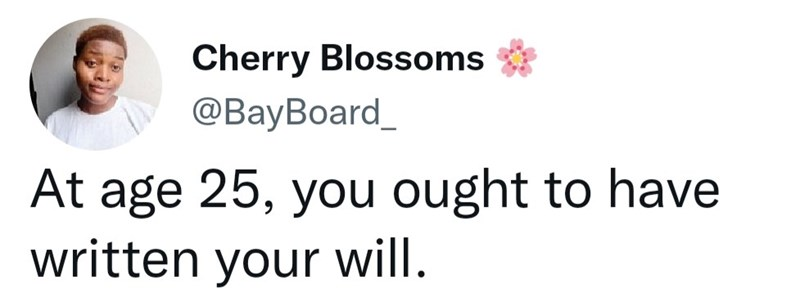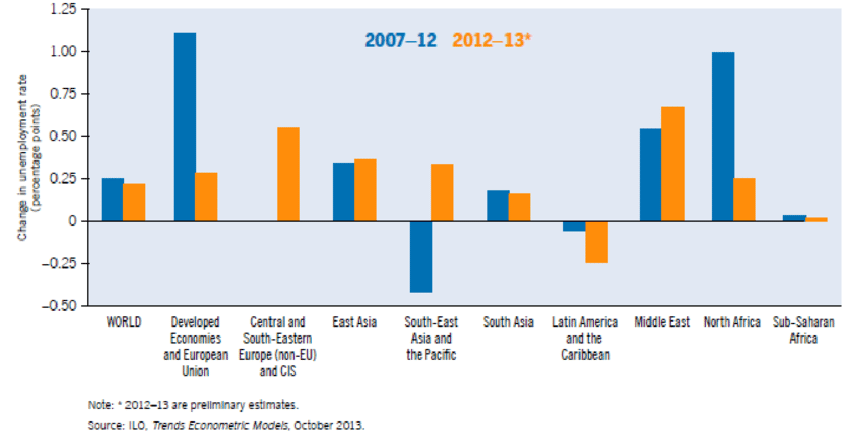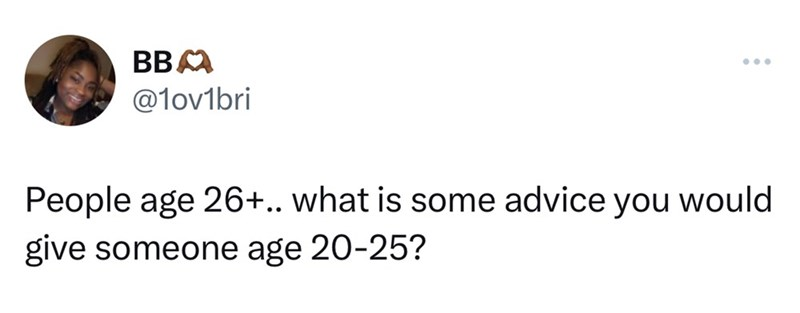The Mid-20s Meltdown: Career, Money, and the Myth of Stability

The Quarter-Life Crossroads
Right now, a lot of young adults across Africa are quietly freaking out. Call it a mid-20s meltdown or whatever, but it’s real. There’s this moment where all the hope and ambition you stacked up over the years suddenly crash into real life. You did what you were supposed to—got the degree, tried out a job or two. Still, you catch yourself thinking, “Wait, this is what I worked for?”
We all grew up hearing that if you worked hard and got an education, life would pretty much sort itself out. It's not quite that simple, is it? In Lagos or Nairobi or Accra, your feeds are just full of people flexing-new cars, vacations, startups, all that. Scroll past the filters, though, and you'll find a lot of

people quietly stressing about money and work, and just trying to figure out who they are.
Nobody really told us what comes after school, not really. The economy is shaky, prices continue to climb, and it's tough to find a good job, let alone retain one. Most of us jumped into the workforce thinking things would be straightforward: get a job, maybe buy a house, things fall into place. Turns out, the old rules don’t work anymore.
So, here we are, low-key panicking. People bounce between gigs, juggle side hustles, hang onto jobs that feel anything but steady, and try to look like they've got it all together. Sarah, a graphic designer based in Accra, put it best: "It's like running on a treadmill that never stops. Everyone looks like they're moving forward, but most of us are just trying not to fall off."
And it’s bigger than just money. There's this constant pressure to compare yourself with everyone else, and these older milestones-settling down, climbing the career ladder by 25-just don't fit anymore. Whereas our parents may have had things all sorted out by this time, we're stuck in this endless cycle of trying to prove we are progressing. Early adulthood used to be a quick transition. Now it just drags on, and honestly, it feels like the test never ends.
The Money Mirage
Money, or not having enough of it, really sits at the heart of that mid-20s chaos. In so many African cities, paychecks just don’t keep up with rising prices. Rent goes up, transport costs more, even simple groceries eat into your budget way faster than your salary grows. People talk about the gig economy like it’s freedom, but for most folks, it’s just scraping by with odd jobs and calling it a hustle.
Then there’s the whole social media circus. Online, everyone’s living large, influencers showing off the “soft life” like anyone can have it if they just try hard enough. Meanwhile, behind the filters, financial stress just builds up. You end up measuring your own life by someone else's highlight reel and feeling like you're already losing before you even get started.
That's not the only disconnect. School promised stability if you played by the rules. But after years chasing degrees, a lot of young people hit the job market and realize what matters most is who you know and how quickly you can adapt. Take Tunde, a 27-year-old engineer in Lagos. He says, “I did everything right, yet I’m living paycheck to paycheck. My friend who just started selling sneakers online makes more than me.”
This isn’t just a Nigeria or Kenya problem. Underemployment stretches across Africa, and most people end up leaning on the informal economy to get by. Sometimes that means starting something new, a little fashion brand, a food delivery gig, videos online. Other times, it’s just endless hustle, burnout, and doubting yourself.

And here’s the twist: all those financial literacy talks and side-hustle success stories pile on more pressure. Now, it feels like you have to turn every hobby or moment of downtime into cash. As one content creator in Nairobi put it, “You can’t even enjoy your hobbies anymore, you’re always figuring out how to make money from them.”
Rethinking Stability
The hardest part about the mid-20s meltdown is how it rips the mask off a story most of us grew up believing, that if you stick to the script, life will eventually settle down. Turns out, stability isn’t something you arrive at. It moves. The world shifts faster than anyone can keep up.
For a lot of young Africans right now, “stability” feels more like a rumor than a promise. You land a job and celebrate, and suddenly the company restructures or the shilling takes a nose dive. Poof, your savings are gone. Rent jumps, side hustles dry up, and that vision of a steady, grown-up life starts to feel like some old fairy tale. But here's what's wild: there is this whole generation figuring out how to roll with the chaos instead of letting it knock them flat.

Young professionals across the continent are redrawing the lines around success. Forget the idea of one job for life. Now it’s all about building a “portfolio life” — stringing together skills, projects, and side gigs. A lawyer runs a podcast. A teacher flips sneakers online. A nurse might coach fitness classes after her shift. It’s less about chasing that one stable paycheck, more about crafting a life that bends with the times.
Tech and remote work have cracked the door wide open. Africans in their twenties aren’t just scrolling their phones — they’re building, selling, freelancing, teaching. In Lagos, Kigali, Nairobi, you see people jumping onto freelance platforms, trading NFTs, launching online stores, teaching global classes. They just get on with the job and let the results speak for themselves.
Of course, all this hustle comes at a price. There's a special kind of tiredness that sets in when you're always adapting. The fear of falling behind never really leaves; it just gets quieter, or maybe sneakier. Productivity becomes a badge of honor, so even rest starts to feel like you're slacking off. You end up judging yourself for needing a break. “It’s not just work fatigue,” says Lungi, a 25-year-old content strategist in Joburg. “It’s existential fatigue. You start to wonder if life will ever feel settled.”
But in all that discomfort, something new is starting to grow. People give themselves permission to chase progress, not perfection. Balance, not burnout. Some are ditching the old markers of success-the fancy car, the big house-and choosing to live with less. Others lean into old-school wisdom, family proverbs about patience and community and waiting for the right season. Not every month needs to be a harvest.
Stability’s being redefined in relationships, too. The whole idea that you had to figure out adulthood on your own is fading. Shared apartments, coworking spaces, WhatsApp groups — these are the new safety nets. People are realizing you don’t have to own everything or control every outcome. Sometimes, real stability comes from connection. After seeing big systems fall apart, this generation’s building smaller, tighter webs of trust, friends who become family, circles that catch you when you start to slip.

Maybe that’s the real lesson inside the meltdown. It’s not just about feeling lost at work or stressed about money. It’s about letting go of the fantasy that life ever really settles. Young Africans are starting to see that change isn’t the enemy. Change can be the ground you stand on.
In the end, the meltdown isn’t just a crisis. It’s a turning point. It teaches you to drop the old blueprints and try something new. Success stops being a straight line and becomes something more honest , learning to stay upright in a world that won’t stop shifting. Maybe the future isn’t about rebuilding the old idea of stability. Maybe it’s about getting good at moving forward, no matter what.
You may also like...
When Sacred Calendars Align: What a Rare Religious Overlap Can Teach Us

As Lent, Ramadan, and the Lunar calendar converge in February 2026, this short piece explores religious tolerance, commu...
Arsenal Under Fire: Arteta Defiantly Rejects 'Bottlers' Label Amid Title Race Nerves!

Mikel Arteta vehemently denies accusations of Arsenal being "bottlers" following a stumble against Wolves, which handed ...
Sensational Transfer Buzz: Casemiro Linked with Messi or Ronaldo Reunion Post-Man Utd Exit!

The latest transfer window sees major shifts as Manchester United's Casemiro draws interest from Inter Miami and Al Nass...
WBD Deal Heats Up: Netflix Co-CEO Fights for Takeover Amid DOJ Approval Claims!

Netflix co-CEO Ted Sarandos is vigorously advocating for the company's $83 billion acquisition of Warner Bros. Discovery...
KPop Demon Hunters' Stars and Songwriters Celebrate Lunar New Year Success!

Brooks Brothers and Gold House celebrated Lunar New Year with a celebrity-filled dinner in Beverly Hills, featuring rema...
Life-Saving Breakthrough: New US-Backed HIV Injection to Reach Thousands in Zimbabwe

The United States is backing a new twice-yearly HIV prevention injection, lenacapavir (LEN), for 271,000 people in Zimba...
OpenAI's Moral Crossroads: Nearly Tipped Off Police About School Shooter Threat Months Ago
ChatGPT-maker OpenAI disclosed it had identified Jesse Van Rootselaar's account for violent activities last year, prior ...
MTN Nigeria's Market Soars: Stock Hits Record High Post $6.2B Deal

MTN Nigeria's shares surged to a record high following MTN Group's $6.2 billion acquisition of IHS Towers. This strategi...
